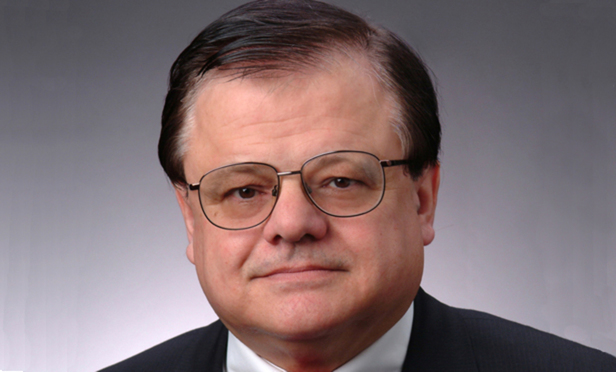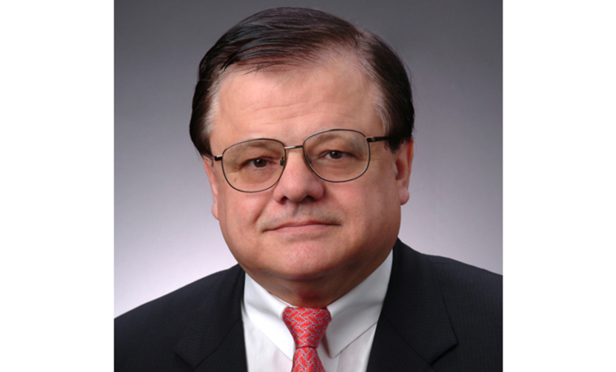Michael J Hutter

April 02, 2015 | New York Law Journal
Proposed Evidence Rules Cover Privilege, Experts, HearsayIn his Evidence column, Michael J. Hutter discusses the 2015 Report from the Advisory Committee on Civil Practice, which offers proposals to address the issue of waiver when otherwise privileged communications are disclosed, the admissibility of hearsay statements made by an employee or agent against his/her employer, and the admissibility of expert testimony which is based upon reports or data that are not themselves in evidence.
By Michael J. Hutter
12 minute read

April 01, 2015 | New York Law Journal
Proposed Evidence Rules Cover Privilege, Experts, HearsayIn his Evidence column, Michael J. Hutter discusses the 2015 Report from the Advisory Committee on Civil Practice, which offers proposals to address the issue of waiver when otherwise privileged communications are disclosed, the admissibility of hearsay statements made by an employee or agent against his/her employer, and the admissibility of expert testimony which is based upon reports or data that are not themselves in evidence.
By Michael J. Hutter
12 minute read

February 05, 2015 | New York Law Journal
Attorney-Client Privilege: Ambac's New Exception to WaiverIn his Evidence column, Michael J. Hutter writes: In a recent decision that has caught the attention of the mergers and acquisitions bar, the First Department recognized an exception to the voluntary disclosure/waiver rule, holding under New York's "common interest" rule an exchange of privileged information made among merging entities and their attorneys prior to closing does not destroy the confidentiality status of the exchanged information.
By Michael J. Hutter
13 minute read

February 04, 2015 | New York Law Journal
Attorney-Client Privilege: Ambac's New Exception to WaiverIn his Evidence column, Michael J. Hutter writes: In a recent decision that has caught the attention of the mergers and acquisitions bar, the First Department recognized an exception to the voluntary disclosure/waiver rule, holding under New York's "common interest" rule an exchange of privileged information made among merging entities and their attorneys prior to closing does not destroy the confidentiality status of the exchanged information.
By Michael J. Hutter
13 minute read

December 04, 2014 | New York Law Journal
Admissibility of Prior Consistent StatementIn his Evidence column, Michael J. Hutter discusses the difference in treatment of a witness' prior consistent statement under New York law, where it is admissible solely for rehabilitative purposes, and even then only when the witness' trial testimony has been attacked as a recent fabrication and the statement predated the charged motive to falsify, and federal law, which treats such statements more liberally for admissibility purposes.
By Michael J. Hutter
12 minute read

October 02, 2014 | New York Law Journal
Admissibility of Habit Evidence in Negligence ActionsIn his Evidence column, Michael J. Hutter writes that while habit evidence is admissible under FRE 406 in negligence actions to show what occurred on the occasion of a person's injury, or careful or careless conduct on the issue of the person's negligence or comparative fault without any limitations, present New York law is restrictive regarding the admissibility of habit evidence in negligence actions.
By Michael J. Hutter
11 minute read

August 07, 2014 | New York Law Journal
Excited Utterances and Present Sense Impressions: Time to Reevaluate?In his Evidence column, Michael J. Hutter writes that in a recent garden variety case in which a 911 call was admitted under the hearsay exceptions for present sense impressions and excited utterances, the Seventh Circuit expressed its view that those exceptions do not necessarily rest on a sound foundation.
By Michael J. Hutter
12 minute read

June 06, 2014 | New York Law Journal
Toxic Mold Case: Experts, Gatekeeping, AdmissibilityIn his Evidence column, Michael J. Hutter analyzes the Court of Appeals' holding in 'Cornell v. 360 West 51st Street Realty' and its elucidation of the "general acceptance" standard for expert testimony.
By Michael J. Hutter
11 minute read

April 03, 2014 | New York Law Journal
'Missing Witness' Rule RevisitedIn his Evidence column, Michael J. Hutter, a professor at Albany Law School, analyzes the Court of Appeals' decisions in 'Devito v. Feliciano,' which decided an issue involving the noncumulative testimony precondition for the missing witness charge, and 'People v. Thomas,' which addressed that precondition in the context of defense counsel's missing witness argument in summation which was made in the absence of a missing witness charge.
By Michael J. Hutter
12 minute read

February 06, 2014 | New York Law Journal
'Oddone' and Experience-Based Expert OpinionIn his Evidence column, Michael J. Hutter, a professor at Albany Law School, writes that a threshold question in applying 'Frye' is whether the principle or procedure that would be the subject of an expert's testimony is "scientific" and if so, whether it is "novel." In 'People v. Oddone,' the Court of Appeals addressed the first part of this question in the context of an expert opinion based on the expert's personal experience.
By Michael J. Hutter
14 minute read
More from ALM
- Legal Speak at General Counsel Conference East 2024: Match Group's Katie Dugan & Herrick's Carol Goodman 1 minute read
- Legal Speak at General Counsel Conference East 2024: Eric Wall, Executive VP, Syllo 1 minute read
- Legal Speak at General Counsel Conference East 2024: Virginia Griffith, Director of Business Development at OutsideGC 1 minute read



